
The Enchanting Shores of Aden Coast
Nestled along the southern shores of Yemen, the Aden Coast is a hidden gem waiting to be discovered by adventurous travelers. This coastal paradise boasts pristine beaches, crystal-clear waters, and a rich tapestry of history and culture that spans millennia. As you stroll along the sandy shores, you'll be captivated by the stunning views of the Arabian Sea and the vibrant marine life that inhabits its waters. Aden has been a significant port city for centuries, and its historical significance is palpable as you explore its ancient ruins and fortresses. The city is home to the famous Aden Crater, a dormant volcano that provides a dramatic backdrop to the coastal landscape. Visitors can also explore the bustling markets, where the scent of exotic spices and the vibrant colors of traditional fabrics create an unforgettable sensory experience. The Aden Coast is not just about its natural beauty and historical sites; it also offers a variety of water sports and activities for thrill-seekers. Whether it's snorkeling, diving, or sailing, there's something for everyone to enjoy. The local cuisine is another highlight, with fresh seafood and aromatic dishes that reflect the region's diverse cultural influences. The warm hospitality of the local people will make your visit even more memorable, ensuring that the Aden Coast remains etched in your heart long after you've left its shores.
Local tips in Aden Coast
- Respect local customs and dress modestly, especially when visiting religious sites.
- Best time to visit is between November and April, when the weather is cooler and more pleasant.
- Try the local seafood dishes, which are a highlight of the region's cuisine.
- Hire a local guide to explore historical sites and learn about the rich history of Aden.
- Be cautious of strong currents when swimming, and always follow local safety advice.
The Enchanting Shores of Aden Coast
Nestled along the southern shores of Yemen, the Aden Coast is a hidden gem waiting to be discovered by adventurous travelers. This coastal paradise boasts pristine beaches, crystal-clear waters, and a rich tapestry of history and culture that spans millennia. As you stroll along the sandy shores, you'll be captivated by the stunning views of the Arabian Sea and the vibrant marine life that inhabits its waters. Aden has been a significant port city for centuries, and its historical significance is palpable as you explore its ancient ruins and fortresses. The city is home to the famous Aden Crater, a dormant volcano that provides a dramatic backdrop to the coastal landscape. Visitors can also explore the bustling markets, where the scent of exotic spices and the vibrant colors of traditional fabrics create an unforgettable sensory experience. The Aden Coast is not just about its natural beauty and historical sites; it also offers a variety of water sports and activities for thrill-seekers. Whether it's snorkeling, diving, or sailing, there's something for everyone to enjoy. The local cuisine is another highlight, with fresh seafood and aromatic dishes that reflect the region's diverse cultural influences. The warm hospitality of the local people will make your visit even more memorable, ensuring that the Aden Coast remains etched in your heart long after you've left its shores.
When is the best time to go to Aden Coast?
Iconic landmarks you can’t miss
Seera Castle
Discover the historic Seera Castle in Aden, Yemen, a fortress with breathtaking views and rich cultural heritage, perfect for every traveler.
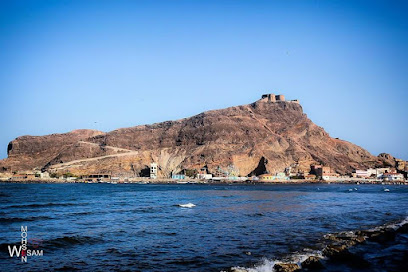
Aden International Airport
Experience the gateway to Yemen at Aden International Airport, where modern travel meets rich cultural heritage and stunning landscapes.
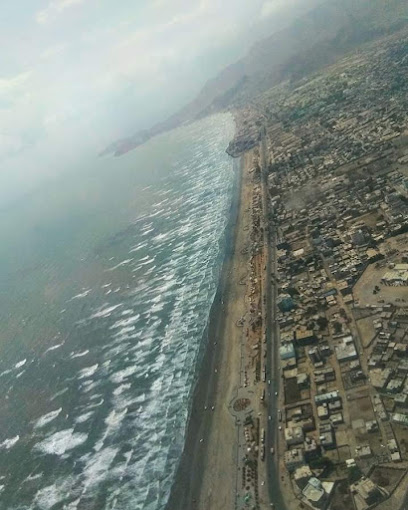
Alsahareej (Water Tanks)
Discover the ancient engineering marvels of Alsahareej Water Tanks in Aden, Yemen, a historical landmark that showcases the region's rich heritage.
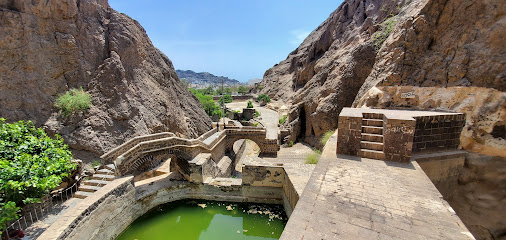
Abyan Coast Park
Experience the serene beauty of Abyan Coast Park in Aden, Yemen, where stunning landscapes, lush greenery, and coastal tranquility await every traveler.
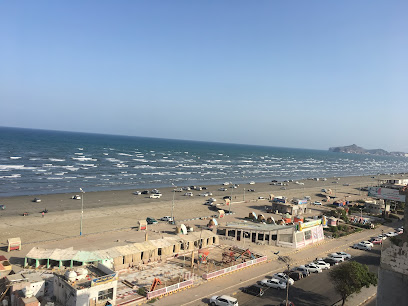
Gold Moh'r Beach. جولد مور
Explore the breathtaking beauty of Gold Moh'r Beach, a hidden gem in Aden, Yemen, known for its golden sands and serene atmosphere.
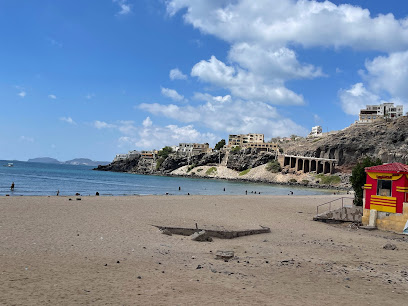
Little Ben Aden
Discover the charm of Little Ben Aden, a historic clock tower that offers stunning views and a glimpse into Aden's rich cultural heritage.
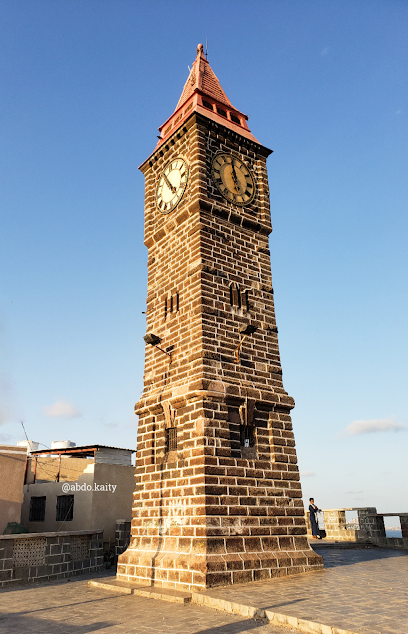
Arabian Sea
Explore the captivating beauty of the Arabian Sea in Aden, Yemen, where adventure and relaxation await amidst stunning coastal scenery.
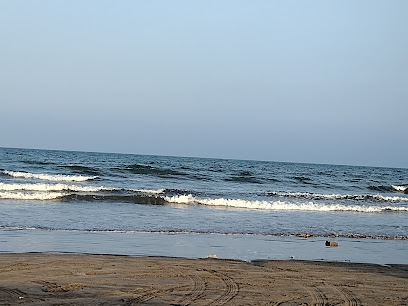
ساحل رامبو
Explore the tranquil beauty of Rambo Beach in Aden, Yemen – a serene public beach destination for relaxation and stunning coastal views.
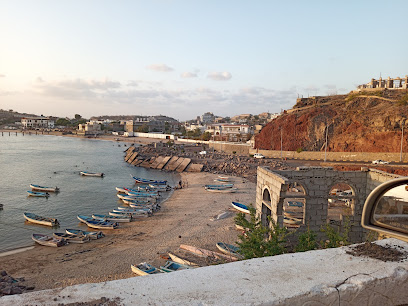
Gulf Of Aden - Kournish Al Al Ghadir
Explore the pristine shores and tranquil waters of Gulf Of Aden - Kournish Al Al Ghadir, a serene beach haven in Yemen.

Aden Peninsula
Experience the stunning coastal beauty and rich cultural heritage of Aden Peninsula, a hidden gem on Yemen's southern coast, perfect for adventure and relaxation.
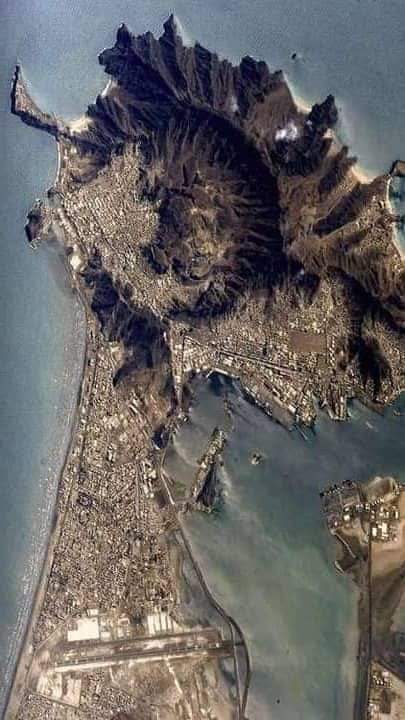
Unmissable attractions to see
Seera Castle
Discover the historic Seera Castle in Aden, Yemen, a stunning fortress with breathtaking views and rich cultural heritage.
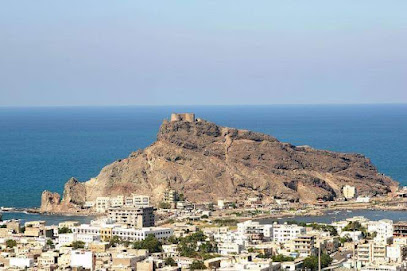
Alsahareej (Water Tanks)
Explore the Alsahareej Water Tanks in Aden, a historical marvel showcasing Ottoman architecture and the city's rich cultural heritage.
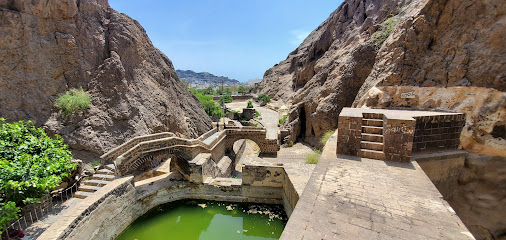
Fun City Park
Explore the excitement of Fun City Park in Aden, where thrilling rides and beautiful green spaces create unforgettable memories.
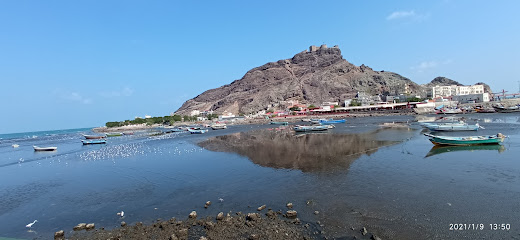
Tiger's Hill Coast
Explore the tranquil beauty of Tiger's Hill Coast in Little Aden, Yemen, a perfect park for nature lovers and serene coastal views.
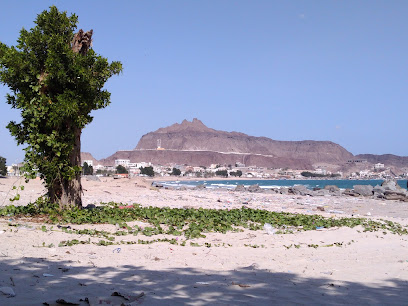
Ghadeer Coast
Experience the tranquility of Ghadeer Coast, a hidden paradise in Little Aden, Yemen, perfect for swimming and beach relaxation.
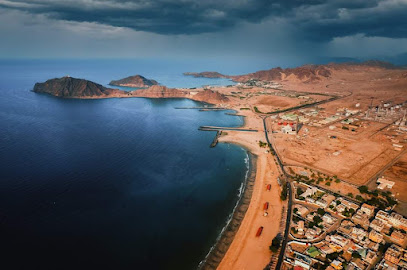
Abyan Coast Park
Experience the beauty and tranquility of Abyan Coast Park, a serene escape along the stunning coastline of Aden, Yemen.
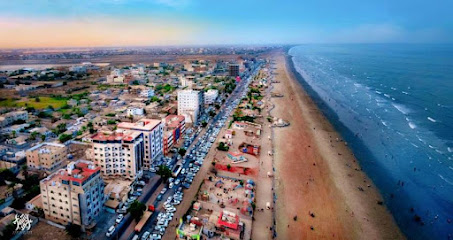
Gold Moh'r Beach. جولد مور
Discover the stunning Gold Moh'r Beach in Aden, Yemen, a picturesque destination for sun and sea lovers, showcasing breathtaking views and vibrant marine life.
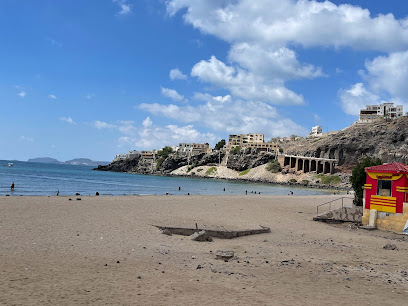
Little Ben Aden
Explore Little Ben Aden, a historical landmark in Yemen showcasing stunning architecture and panoramic views of the vibrant city of Aden.
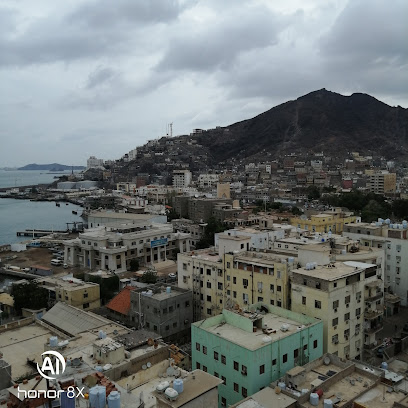
Cornish Little Aden
Experience the serene beauty of Cornish Little Aden, Yemen's hidden beach paradise with stunning sunsets and rich cultural experiences.
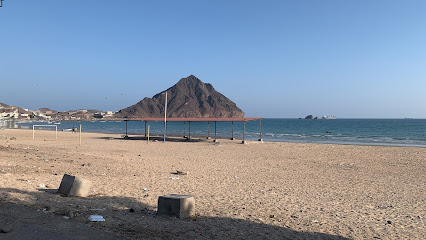
ساحل رامبو
Experience the tranquil beauty of ساحل رامبو, a public beach in Aden, Yemen, perfect for relaxation and cultural exploration.
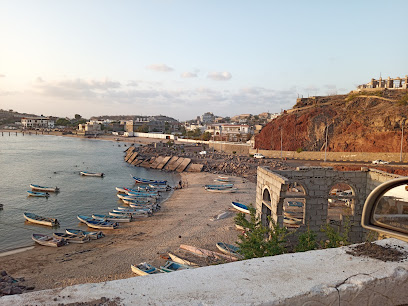
Essential places to dine
مطاعم شواطئ عدن السياحية - Shawati Aden Tourist Restaurant
Discover authentic Yemeni flavors at Shawati Aden Tourist Restaurant with stunning beach views and delightful seafood dishes.
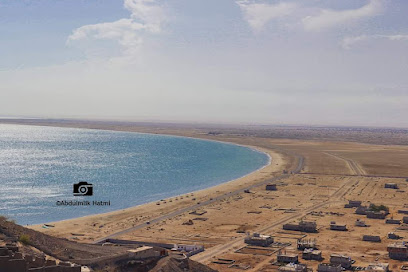
Alshaibany corporation for restaurants
Experience authentic Yemeni flavors at Alshaibany Corporation for Restaurants - your ultimate dining destination in Sana'a.
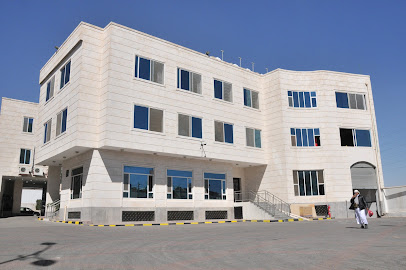
Bandar Aden Restaurant
Discover the rich flavors of Yemen at Bandar Aden Restaurant in Doha – where every dish tells a story of tradition and culinary excellence.
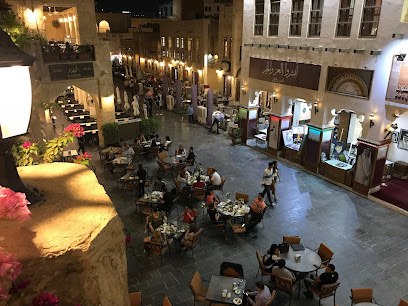
Saraya Restaurant
Discover authentic Yemeni cuisine at Saraya Restaurant in Al Hudaydah - where tradition meets flavor.
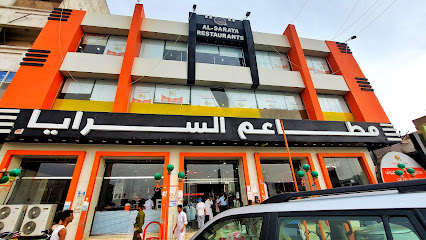
Alhamra Resturant
Experience authentic Yemeni flavors at Alhamra Restaurant in Sana'a - where every dish tells a story of tradition and culture.
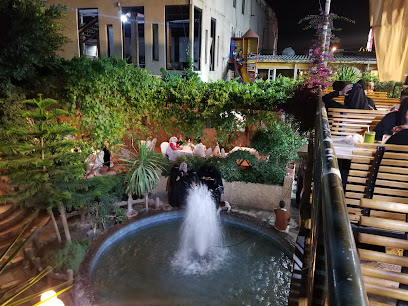
Al Marasim Restaurants
Experience the flavors of Yemen at Al Marasim Restaurants in Aden - a culinary gem offering delicious local cuisine in a warm atmosphere.
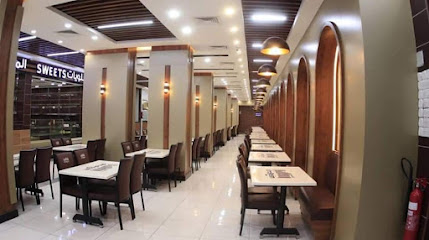
Mumbai Darbar Indian Restaurant
Experience authentic Indian cuisine at Mumbai Darbar Indian Restaurant in Sana'a - where vibrant flavors meet warm hospitality.
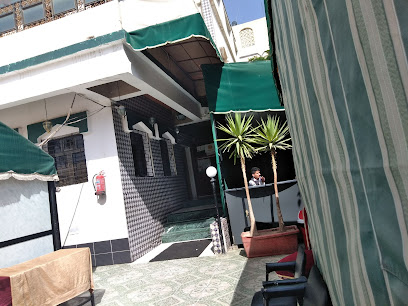
Sanaa Restaurants
Explore Sanaa's vibrant restaurant scene for an unforgettable taste of authentic Yemeni cuisine amidst rich cultural heritage.
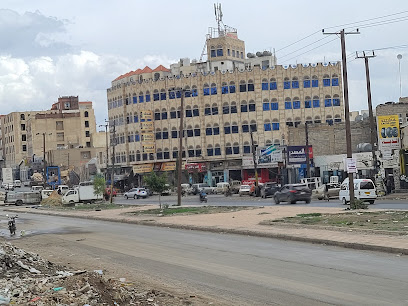
Aden Coast Restaurant
Discover delicious seafood and breathtaking views at Aden Coast Restaurant in Az Zaydiyah, Yemen - a must-visit culinary destination.
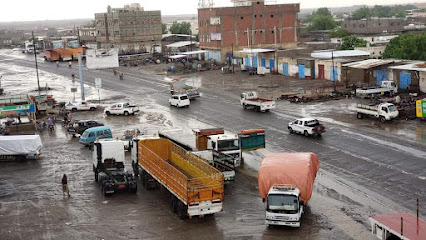
مطاعم وبرست كريتر/ لصاحبها احمد نعمان
Experience authentic Yemeni cuisine at مطاعم وبرست كريتر in Ad Dali - where tradition meets taste in an inviting atmosphere.
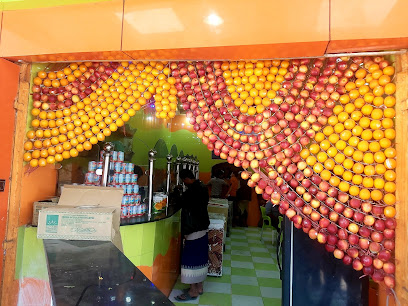
Marriott aden restaurant مطعم ماريوت عدن
Experience exquisite Yemeni and international cuisine at Marriott Aden Restaurant in the heart of Aden.
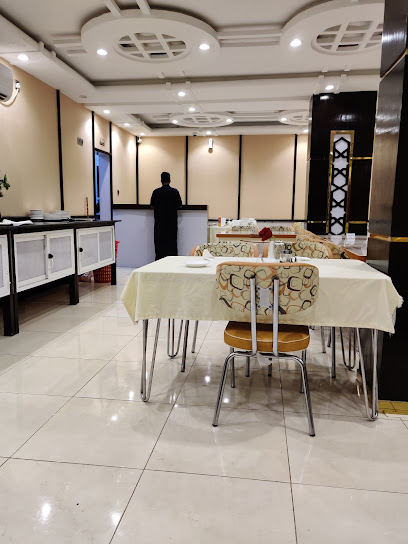
Resto Aden مطعم ريستو عدن
Experience the rich flavors of authentic Yemeni cuisine at Resto Aden in Sheikh Othman.
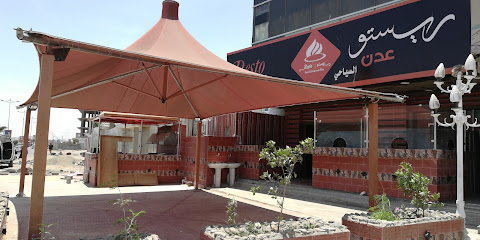
مطعم حضرموت
Savor traditional Yemeni dishes at مطعم حضرموت in الشابات - an authentic taste of Yemen's culinary heritage.
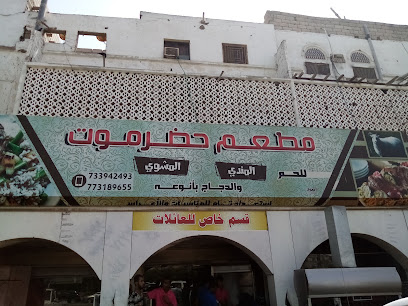
Markets, malls and hidden boutiques
Seera Castle
Discover the enchanting Seera Castle in Aden, Yemen, a historical fortress with breathtaking views and rich cultural heritage.
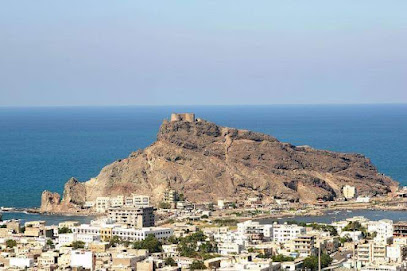
Alsahareej (Water Tanks)
Explore the historical marvel of Alsahareej Water Tanks in Aden, a blend of cultural heritage and stunning architecture.
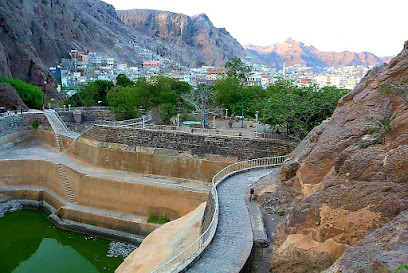
Elephant Bay Beach Resort
Experience unparalleled serenity and adventure at Elephant Bay Beach Resort, where the beauty of Aden meets luxurious relaxation and vibrant local culture.
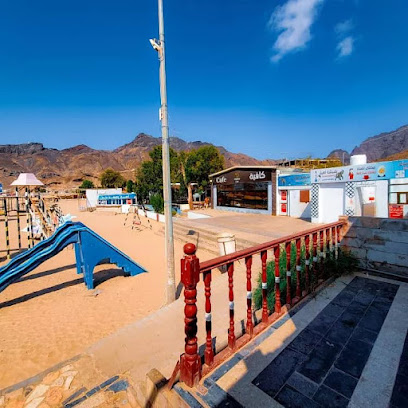
Aden Mall
Discover shopping, dining, and entertainment at Aden Mall, a top destination in Yemen blending modernity with cultural richness.
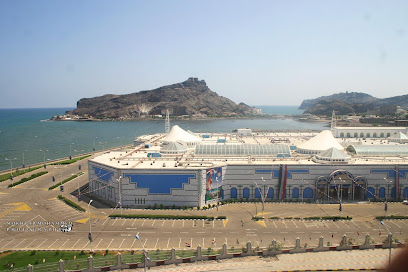
Gulf Mall
Explore Aden's Gulf Mall for a unique shopping experience, blending modern retail with local culture in a vibrant atmosphere.
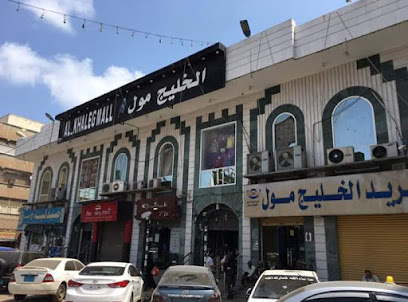
Aden International Market
Experience the essence of Yemeni culture at Aden International Market, a vibrant shopping destination filled with local goods and delicious street food.
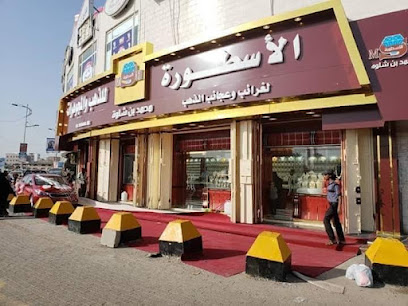
Puerto de Adén
Explore Puerto de Adén: A historical port blending rich culture, maritime adventure, and stunning coastal views in Yemen.
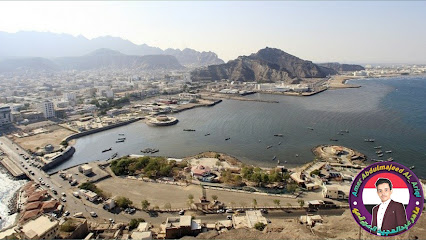
ساحل ابين Abyan beach
Discover the tranquil beauty of Abyan Beach in Aden, Yemen, where soft sands and clear waters create the perfect escape for relaxation and adventure.
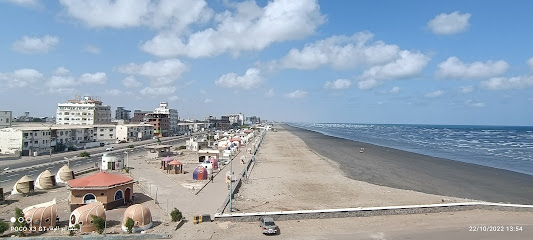
الدفه
Explore the vibrant fashion scene at الدفه, a clothing store in Aden, Yemen, blending traditional styles with modern trends for a unique shopping experience.
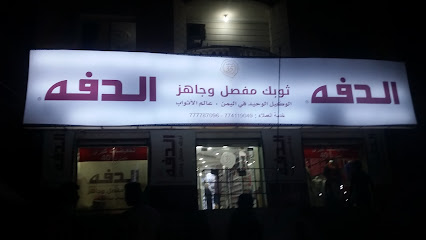
Yemeni honey world
Discover the rich flavors and health benefits of Yemeni honey at Yemeni Honey World in Aden, a haven for honey lovers and cultural explorers.

عبود غير لتخفيضات
Explore عبود غير لتخفيضات, the go-to beach clothing store in Aden, Yemen, for stylish beachwear and accessories to enhance your coastal adventures.

Essential bars & hidden hideouts
Alshaibany corporation for restaurants
Experience the richness of Yemeni flavors at Alshaibany Restaurant in Sana'a, offering a diverse menu from barbecue to fine dining.
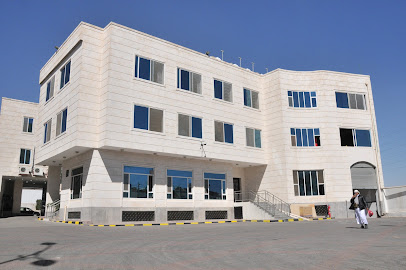
Bandar Aden Restaurant
Experience authentic Yemenite cuisine at Bandar Aden Restaurant, a culinary gem in the heart of Doha, offering a unique taste of rich flavors and warm hospitality.
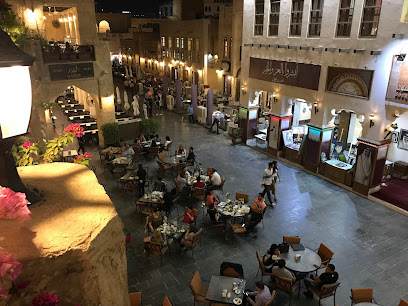
Mumbai Darbar Indian Restaurant
Experience the authentic taste of Indian cuisine at Mumbai Darbar Indian Restaurant in Sana'a, where every dish tells a story.
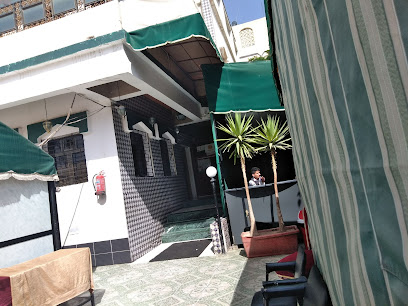
New Yemen Restaurant
Discover the authentic flavors of Yemenite cuisine at New Yemen Restaurant in Abu Dhabi, where every dish tells a story.
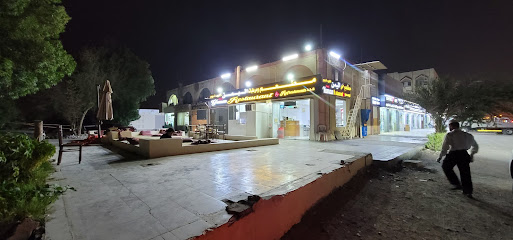
Khaleej Aden Restaurant
Experience the rich flavors of traditional Yemeni cuisine at Khaleej Aden Restaurant in Dubai's Deira area.
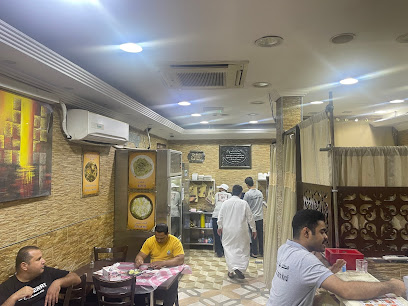
Galaxy Bar
Discover Galaxy Bar in Dubai – The ultimate destination for vibrant nightlife, exquisite cocktails, and breathtaking views of the city skyline.

Local Phrases about Aden Coast
-
- Helloمرحبا
[Marhaba] - Goodbyeوداعا
[Wadaa'an] - Yesنعم
[Na'am] - Noلا
[La] - Please/You're welcomeمن فضلك/على الرحب والسعة
[Min fadlik/Ala al-rahb was-sa'ah] - Thank youشكرا
[Shukran] - Excuse me/Sorryعذرا
[A'dhara] - How are you?كيف حالك؟
[Kayfa haluk?] - Fine. And you?بخير. وأنت؟
[Bikhayr. Wa anta?] - Do you speak English?هل تتحدث الإنجليزية؟
[Hal tatahadath al-ingliziyya?] - I don't understandأنا لا أفهم
[Ana la afham]
- Helloمرحبا
-
- I'd like to see the menu, pleaseأرغب في رؤية القائمة، من فضلك
[Arghab fi ru'yat al-qa'imah, min fadlik] - I don't eat meatأنا لا آكل اللحم
[Ana la aakul al-lahm] - Cheers!في صحتك!
[Fi sahtak!] - I would like to pay, pleaseأود أن أدفع، من فضلك
[Awd an adfa', min fadlik]
- I'd like to see the menu, pleaseأرغب في رؤية القائمة، من فضلك
-
- Help!النجدة!
[Al-najdah!] - Go away!انصرف!
[Ansuraf!] - Call the Police!اتصل بالشرطة!
[Itsal bil-shurta!] - Call a doctor!اتصل بطبيب!
[Itsal bitabib!] - I'm lostلقد ضللت الطريق
[Liqad dallat al-tariq] - I'm illأنا مريض
[Ana mareed]
- Help!النجدة!
-
- I'd like to buy...أرغب في شراء...
[Arghab fi shira'...] - I'm just lookingأنا فقط أتطلع
[Ana faqat atatala] - How much is it?كم سعره؟
[Kam siroh?] - That's too expensiveهذا غالي جدا
[Hatha ghali jiddan] - Can you lower the price?هل يمكنك تخفيض السعر؟
[Hal yumkinuk takhfid al-siroh?]
- I'd like to buy...أرغب في شراء...
-
- What time is it?كم الساعة؟
[Kam al-sa'ah?] - It's one o'clockالواحدة
[Al-wahidah] - Half past (10)العاشرة والنصف
[Al-'ashirah wan-nisf] - Morningالصباح
[Al-subah] - Afternoonالظهر
[Al-dhuhr] - Eveningالمساء
[Al-masa'] - Yesterdayأمس
[Ams] - Todayاليوم
[Al-yawm] - Tomorrowغدا
[Ghadan] - 1واحد
[Wahid] - 2اثنان
[Ithnan] - 3ثلاثة
[Thalatha] - 4أربعة
[Arba'a] - 5خمسة
[Khamsa] - 6ستة
[Sitta] - 7سبعة
[Sab'a] - 8ثمانية
[Thamaniya] - 9تسعة
[Tis'a] - 10عشرة
[Asharah]
- What time is it?كم الساعة؟
-
- Where's a/the...?أين...؟
[Ayna...?] - What's the address?ما هو العنوان؟
[Ma huwa al-‘anwan?] - Can you show me (on the map)?هل يمكنك أن تريني (على الخريطة)؟
[Hal yumkinuk an tarini (‘ala al-kharitah)?] - When's the next (bus)?متى يأتي الحافلة التالية؟
[Mata ya'ti al-hafilah al-taliyah?] - A ticket (to ....)تذكرة (إلى...)
[Tadhkirah (ila...)]
- Where's a/the...?أين...؟
History of Aden Coast
-
The Aden Coast has been a significant maritime hub since ancient times, serving as a vital link between the Indian Ocean, the Red Sea, and the Mediterranean. Archaeological evidence suggests that the region was a thriving center of trade and commerce as far back as the 7th century BCE, connecting ancient civilizations through the exchange of goods like spices, silk, and incense.
-
During the 1st millennium BCE, the Kingdom of Awsan emerged in the region, with its capital near present-day Aden. Awsan was known for its wealth and strategic importance in the Arabian Peninsula, controlling trade routes and fostering economic prosperity until it was ultimately conquered by the Himyarite Kingdom in the 4th century CE.
-
The advent of Islam in the 7th century brought significant changes to the Aden Coast. The area became part of the rapidly expanding Islamic Caliphate under the Rashidun, Umayyad, and Abbasid dynasties. Aden flourished as a key port in the Islamic world, facilitating trade between the Middle East, South Asia, and East Africa.
-
In the 13th and 14th centuries, the Rasulid Dynasty ruled over Yemen, including the Aden Coast. The Rasulids transformed Aden into a prosperous and fortified city, constructing impressive buildings and infrastructure that included mosques, palaces, and defensive walls. Their reign marked a golden age for the region, with Aden becoming one of the most important ports in the Indian Ocean.
-
By the 16th century, the Ottoman Empire extended its reach to Yemen, including the Aden Coast. Despite periods of local resistance and fluctuating control, the Ottomans maintained influence over the region for several centuries. During this time, Aden continued to serve as a crucial maritime gateway, though it faced competition from emerging European colonial powers.
-
In 1839, the British Empire seized control of Aden, recognizing its strategic importance for maritime trade and its potential as a coaling station for ships traveling between Europe and Asia. The British established Aden as a Crown Colony in 1937, fostering economic development and modernizing the port facilities. Aden became one of the busiest ports in the world, playing a key role in global trade networks.
-
The mid-20th century saw growing nationalist sentiment and resistance to British rule in Aden. The Aden Emergency (1963-1967) was marked by violent clashes between British forces and Yemeni insurgents. In 1967, the British withdrew, and Aden became part of the newly independent People's Republic of South Yemen. This period was characterized by political upheaval and efforts to establish a socialist state.
-
In 1990, North Yemen and South Yemen unified to form the Republic of Yemen, with Aden playing a pivotal role as the commercial hub of the southern region. The city and its coast have since faced challenges, including political instability and conflict. Despite these difficulties, Aden remains a testament to its rich history and cultural legacy, continuing to attract visitors with its historical sites and vibrant maritime traditions.
Aden Coast Essentials
-
Aden Coast is accessible via Aden International Airport, located approximately 10 km from the city center. Major airlines operate flights to Aden from various international hubs in the Middle East and Africa. From the airport, you can take a taxi or arrange for hotel transfers to reach your destination. Alternatively, if you are traveling from within Yemen, long-distance buses and shared taxis are available from major cities like Sana'a and Mukalla.
-
Within Aden Coast, taxis are the most common mode of transportation. They are relatively affordable and can be flagged down on the street or booked through your hotel. Ride-hailing apps are also becoming increasingly popular. Public minibuses, known locally as 'dabab', provide an inexpensive way to travel around, though they may be crowded. Renting a car is an option, but be aware of local driving conditions and traffic rules.
-
The official currency in Yemen is the Yemeni Rial (YER). While major hotels and some restaurants in Aden Coast accept credit cards, it is advisable to carry cash for smaller establishments and local markets. ATMs are available but may not always be reliable, so it's wise to bring sufficient cash for your stay. Currency exchange services are available at the airport and in major hotels.
-
Aden Coast is generally safe for tourists, but it is important to remain vigilant. Avoid areas known for political unrest and high crime rates, particularly in the Crater and Al-Mualla districts. Petty crimes like pickpocketing can occur, so keep your belongings secure. It is advisable to travel in groups, especially after dark, and stay updated on the current security situation through reliable sources.
-
In case of emergency, dial 199 for police assistance and 191 for medical emergencies. Aden Coast has several hospitals and clinics, with Al-Jumhouriya Hospital being one of the main medical facilities. Ensure you have travel insurance that covers medical emergencies. For minor health issues, pharmacies are available throughout the city. It is also advisable to register with your embassy upon arrival.
-
Fashion: Do dress modestly; women should cover their arms and legs. Avoid wearing revealing clothing. Religion: Do respect Islamic customs. Avoid public displays of affection and dress conservatively, especially when visiting mosques. Public Transport: Do be respectful of local customs. Don't eat or drink on public transport. Greetings: Do greet people with a handshake. Men should wait for women to extend their hand first. Eating & Drinking: Do try the local cuisine and accept food offerings graciously. Don't refuse hospitality, as it is considered impolite.
-
To experience Aden Coast like a local, visit the bustling markets such as the Crater Market, where you can buy fresh produce and traditional Yemeni goods. Engage with locals, who are often friendly and willing to share their stories. Don't miss the historic sites like the Aden Tanks and the Sira Fortress. For a unique experience, try the local dish 'saltah' and enjoy a traditional Yemeni coffee at a local café.
Nearby Cities to Aden Coast
-
Things To Do in Mirbat
-
Things To Do in Aden
-
Things To Do in Dhamar
-
Things To Do in Ibb
-
Things To Do in Sana'a
-
Things To Do in Hargeisa
-
Things To Do in Obock
-
Things To Do in Loyada
-
Things To Do in Najran
-
Things To Do in Djibouti City
-
Things To Do in Tadjoura
-
Things To Do in Arta
-
Things To Do in Bahla
-
Things To Do in Nizwa
-
Things To Do in Ibri









